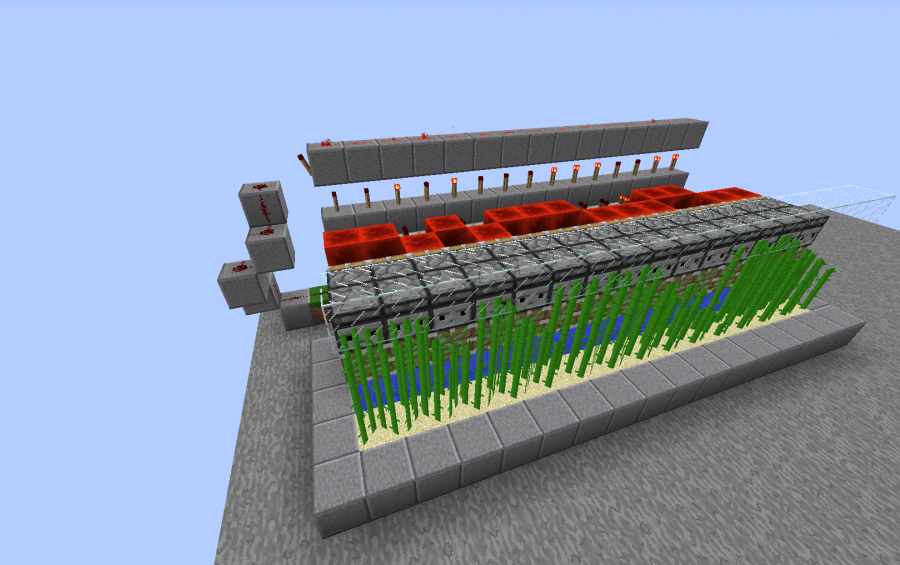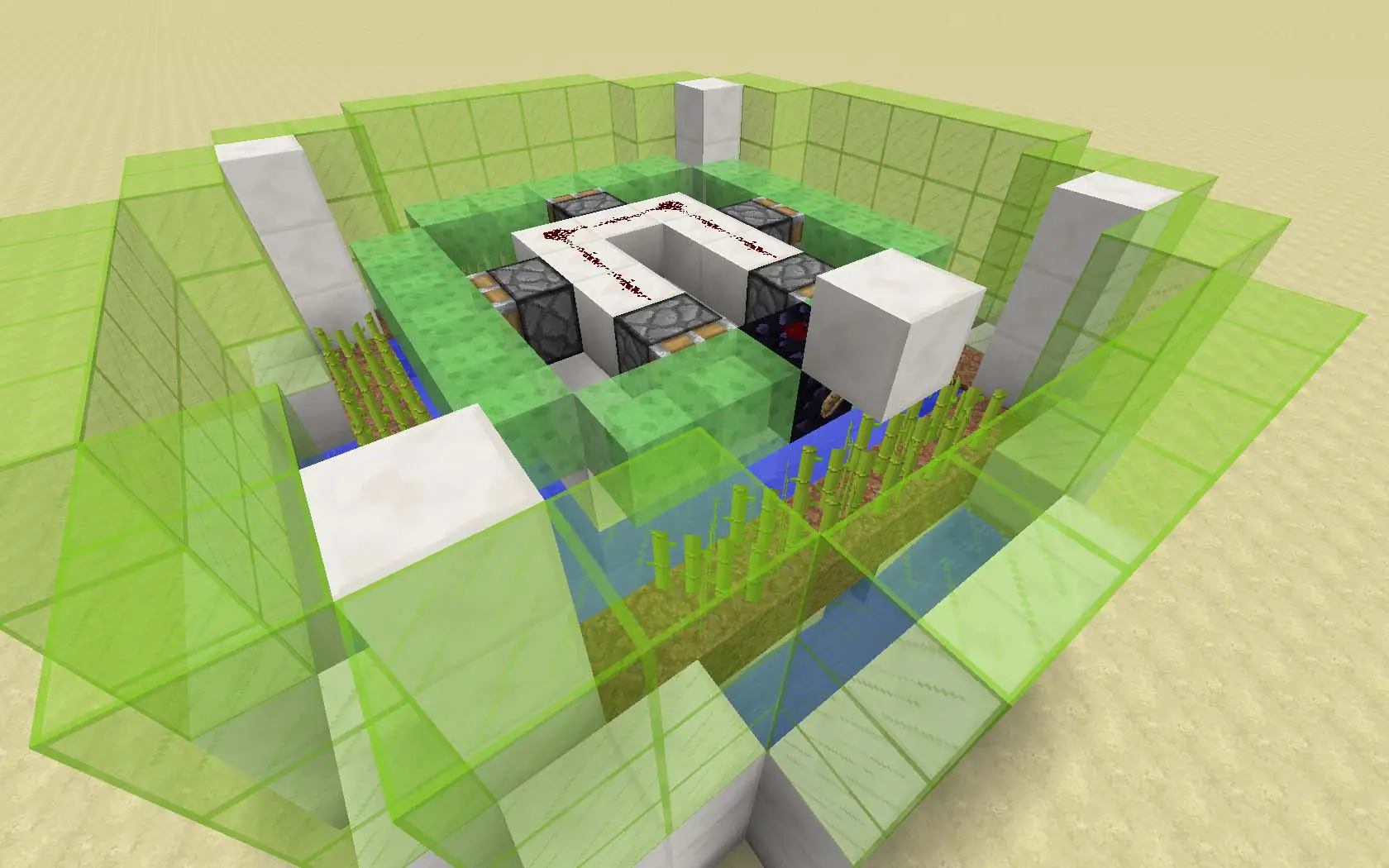

Additionally, a single hopper may not be able to keep up with the large amount of sugar cane, so multiple hoppers or a slower clock should be used.

However, since pistons cannot push and retract as quickly as the observer clock, it may be desirable to use a different redstone clock. It is not difficult to connect this with a piston to make it more automatic. The player can then stand and constantly break the middle block of sugar cane to quickly farm large quantities. Since bone meal is not used up on fully grown sugar cane, none is wasted. In the shown design, the dispenser can be filled with bone meal to constantly grow the sugar cane. This mechanic can be used to create automatic sugar cane farms. In Bedrock Edition, bone meal can be used to instantly grow sugar cane to maximum height. Removing the water streams with the dispensers should cause the sugar cane to break so the player can pick them up and replant. Then, place dispensers containing water buckets to control the water flow.
#Automatic sugarcane farm curcit manual
These can often be easily converted into automatic designs as seen in the next section.īuild the double rowed design as shown in the manual farms list. Some other designs here are classified as semi-automatic due to their lack of ability to pick up the sugar cane. These designs should still work in Java Edition, however, it takes a bit more time for the sugar cane to break. Using this principle, it is easy to create semi-automatic farms that harvest the sugar cane. In Bedrock Edition, when sugar cane's water source is removed, it immediately breaks. Watch out for creepers camouflagued among the plants.

Then, pick up any missed items and continue. When harvesting, walk slowly and sweep side to side breaking all but the bottom block of each sugar cane. Slabs or trapdoors can be placed as waterlogged blocks in the upper half of the water sources instead of lily pads without interfering with their ability to sustain plant growth. Light blocks can be used under or above the water to prevent mob spawning. Placing lily pads or something similar on top of all water blocks makes the ground smooth and easy for the player to walk on without falling. This design has 4 sugar canes per water source, so it is highly compact. This compact pattern allows planting four sugar cane per water block.Ī more efficient grid pattern design can also be used. Not only is it easier to build it flowing, but when harvesting, any items that fall into the water flow into a central location. With this design, it is recommended to use flowing water rather than water sources. It is also a good choice for some of the semi-automatic designs below. Sugar cane farms must balance between compactness, ease of harvest, and difficulty to build.Ī double rowed design, while not the most efficient of designs as it has only 2 canes per water, is relatively easy to build and harvest. However, this quickly becomes impractical when implemented on a large scale. When starting out, simply placing sugar cane on a river bank should be sufficient. The first step in building a sugar cane farm is choosing a design. This pattern is easier to harvest since the player doesn't fall into the water as often. The growth range is based on simulation distance.

Sugar cane, like saplings, wheat, and cacti, grows only if the chunk they are on is loaded into memory, so you should not venture too far from the field if you want it to grow. This limit can be bypassed by placing additional plants on top of an existing one but it does not grow naturally any further. Sugar cane can naturally grow up to 3 blocks in height. Sugar cane's growth rate is unaffected by the absence of light. On average, sugar cane grows 1 block every 18 minutes. In Bedrock Edition, the sugar cane is updated with its water, so it breaks immediately.Įvery 16 random ticks, sugar cane grows 1 block in height, similar to how cactus, kelp, and bamboo grow. If a plant's water source is removed, it breaks when it is next updated. The block must be directly adjacent to water and not merely above or diagonal as with crops. Sugar cane can only be planted on grass block, dirt, coarse dirt, rooted dirt, podzol, mycelium, sand, red sand, moss block and mud.


 0 kommentar(er)
0 kommentar(er)
